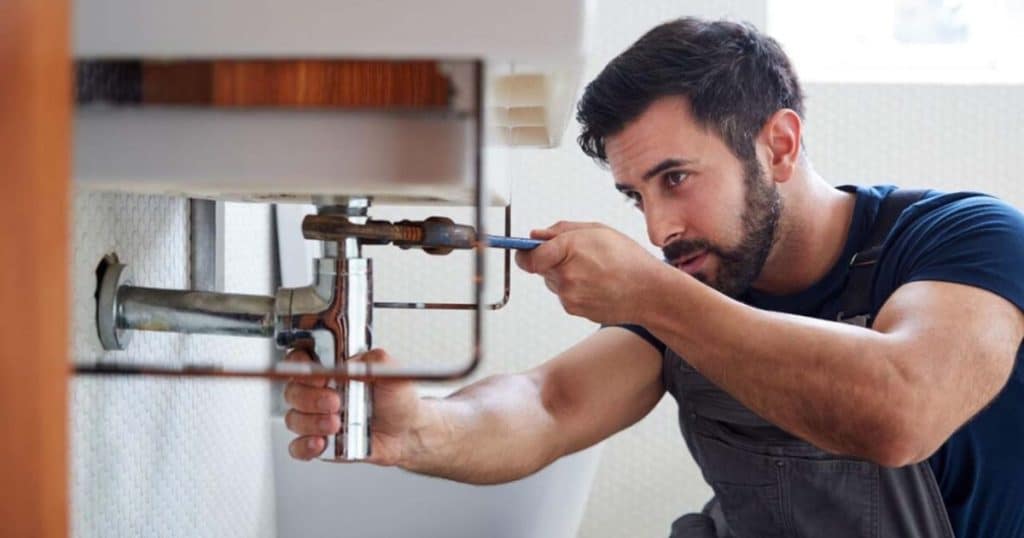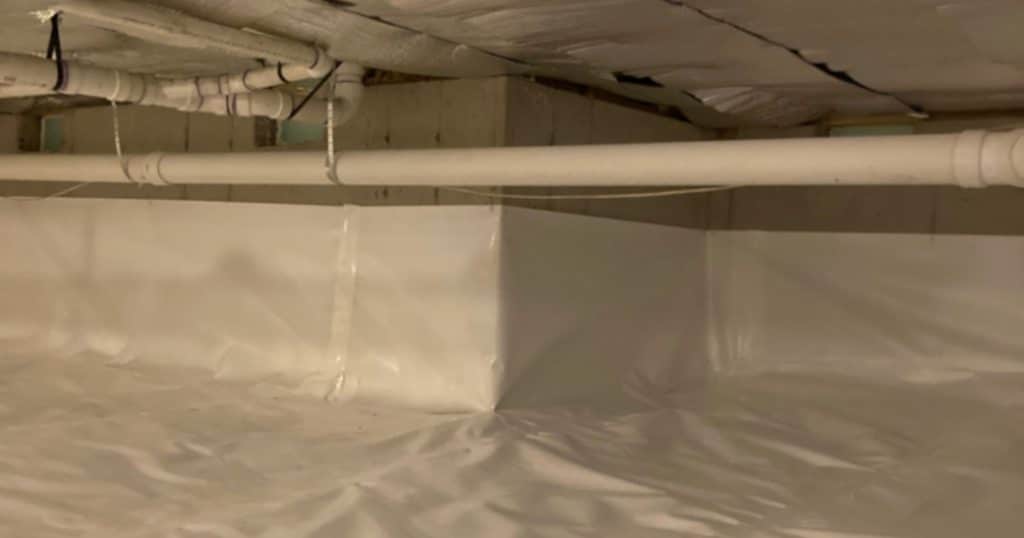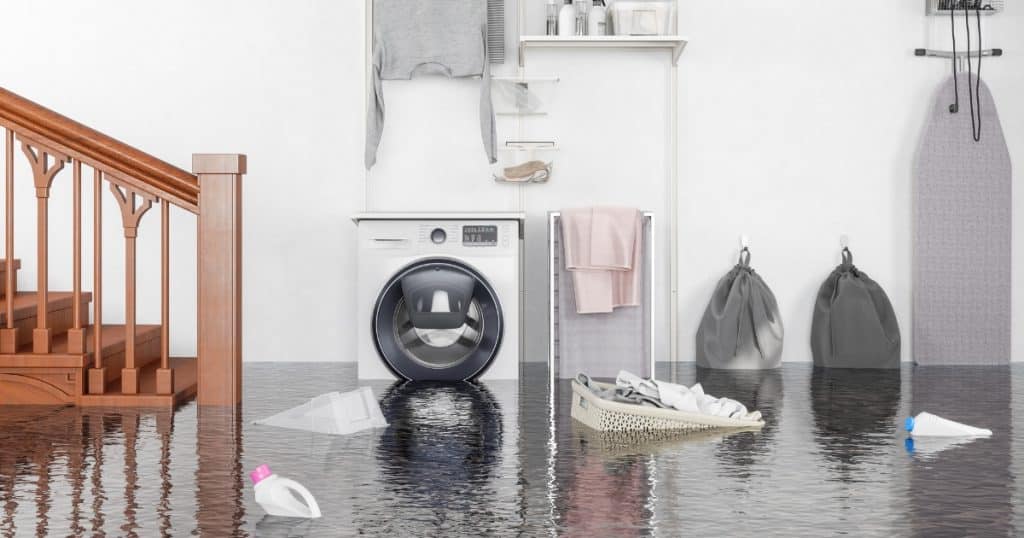
Maintaining the plumbing system in rental properties is not just a matter of convenience; it is an integral part of property management that affects both landlords and tenants. The plumbing system is the lifeline of every rental property, facilitating vital functions such as water supply, drainage, and sanitation. As a result, effective functioning is critical to guaranteeing tenants’ comfort, safety, and overall well-being.
First, a well-maintained plumbing system ensures that tenants are comfortable and satisfied. Leaky faucets, clogged drains, and faulty toilets can soon become significant irritants, causing tenant dissatisfaction and possibly even legal issues if not rectified immediately. Also, disregarding plumbing maintenance can lead to costly repairs in the future, reducing the landlord’s income and diminishing the property’s value. You should hire a dedicated rental property manager in Baltimore who understands the maintenance needs of your rental.
Whether you’re an experienced homeowner or a newbie, this post is for you. By prioritizing plumbing maintenance, landlords may fulfill their obligation to provide suitable living conditions for renters while protecting their property investment. Continue reading below as we discuss the importance of plumbing system maintenance for rental properties.
The Importance of Crawl Space Encapsulation in Plumbing System Maintenance

- Streamlined Maintenance and Enhanced Functionality
Crawl space encapsulation makes it easier to access and service plumbing systems. The enclosed space provides a controlled environment, facilitating maintenance tasks and inspections. This convenience extends to repairs, changes, and upgrades, as professionals can work efficiently in a well-encapsulated crawl space, reducing the time and effort required for plumbing interventions.
Ultimately, crawl space encapsulation emerges as a proactive strategy that not only preserves the health of the plumbing system but also streamlines maintenance and enhances the long-term functionality of a property. - Reduces Heating and Cooling Costs.
Crawl space encapsulation involves adding an extra layer of internal insulation to the crawl space walls. Also, the vapor barrier covering the floor provides adequate insulation between the floor and the ground. This insulation shields the crawl space and the floor above it from extreme temperatures outside, ensuring warmth during winter and coolness during summer.
Also, crawl space encapsulation in relation to plumbing prevents issues like freezing and pipe bursts. In colder climates, encapsulation acts as an insulating layer, protecting pipes from harsh temperatures and minimizing the risk of frozen pipes. This preventive measure safeguards the plumbing system and averts potential water damage and costly repairs associated with burst pipes.
Crawl space encapsulation increases the house’s energy efficiency, which means the HVAC system has to work less hard to keep the house warm. Lower AC usage leads to decreased energy consumption and electric bills. - Keep Pests Off
Some insects and rodents prefer to live in crawl spaces, like roaches, beetles, ants, termites, mice and rats, and moles. The dark, humid, untidy, rent-free environment is just what they need for feeding and reproducing. These uninvited guests can carry deadly infections and cause all kinds of mischief.
Encapsulating the crawl space protects it from pests and reduces the possibility of dangerous infestation. Sealing the crawl space is one of the most effective ways to eliminate various household pests like roaches and ants since it is where they hide and breed. - Protects the Property’s Structural Integrity
Excessive moisture accumulation in the crawl space may damage foundations, jeopardizing the house’s overall structural integrity. Dampness, mold, and pests can all cause damage to the wooden, metal, or concrete structures that support the floor or the entire building. Encapsulating the crawl space prevents this from happening. - Prevents the Growth of Mold and Mildew
Mold and other fungus, such as lichen and mildew, thrive in dark, wet, humid environments. An unsealed crawl space provides an ideal habitat for fungus colonies. However, eliminating moisture and maintaining consistent air circulation inside the crawl space renders the atmosphere unfriendly to mold.
A mold infestation in any aspect of the property is not to be taken lightly. Mold’s typical musty odor is only the beginning of the difficulties. As mold grows, it emits dust-like spores and other mycotoxins into the atmosphere, which may trigger allergic reactions and respiratory problems. Mold also feeds on the materials on which it grows, causing them to decay or wither.
Consequences of Not Maintaining Plumbing Maintenance

- Flooding
Regardless of where they are, small leaks can quickly become huge problems. Leaky or clogged pipes can burst, flooding the area and causing damage to walls, floors, furniture, and personal items. You can avoid this problem by having an expert come out and fix the leak and inspect the plumbing.
However, if a plumbing problem causes pooling or standing water, the leak’s moisture could aid mold or mildew growth in crawl space. Health issues, deteriorating woodwork, a musty home odor, allergies, and property damage are all possible concerns. Mold and mildew proliferate, so if you discover them in your home, contact a professional plumber immediately. - Decreased Property Value
Neglecting plumbing maintenance increases the risk of your property value decreasing. Unresolved concerns such as leaks, pipe bursts, or water damage can compromise the property’s structural integrity and aesthetic appeal.
Visible plumbing problems can deter prospective tenants, reducing the property’s market attractiveness. Furthermore, a history of ignored maintenance may indicate a lack of overall care, reducing perceived value. Timely plumbing maintenance is essential for functionality and maintaining the property’s value and market competitiveness in the real estate sector. - Legal Consequences
Landlords must maintain livable conditions; therefore, neglecting plumbing maintenance may have legal consequences. Failure to solve plumbing issues quickly may result in lease breaches and legal challenges with renters.
Local housing codes frequently require landlords to maintain plumbing systems, and noncompliance can result in fines or legal action. Also, tenants may be able to withhold pay or terminate the lease if necessary plumbing repairs are not completed, stressing the necessity of proactive maintenance in avoiding legal implications and maintaining a healthy landlord-tenant relationship. - Increased Utility Bills
Neglecting plumbing maintenance might result in higher utility bills owing to system inefficiencies. Leaky pipes, leaking toilets, and malfunctioning fixtures all add to water wastage, which raises monthly expenses. The continual flow of water from unnoticed leaks wastes a valuable resource and financially strains residents.
Furthermore, unresolved plumbing problems make the water heater and other appliances work harder, wasting more energy. By failing to maintain their property, homeowners risk not just property damage but also unnecessary expenses, which impact both their finances and the environment. Regular maintenance is required to ensure an efficient and cost-effective plumbing system. - Health Risk
There are serious health risks when plumbing maintenance is neglected in dirty, damp crawl spaces. Moisture-induced mold, mildew, and bacterial growth create an environment conducive to allergies and respiratory issues.
Contaminants from the crawlspace can enter living areas through air circulation, putting tenants at risk for health problems. Additionally, pests attracted to damp conditions in neglected crawl spaces may further contribute to health concerns, making it imperative to prioritize plumbing maintenance for both the occupants’ well-being and the property’s integrity.
Elevate Your Rental Property’s Value Now with Proper Plumbing Maintenance and Crawl Space Encapsulation
Ensuring the health and functionality of your rental property’s plumbing system is paramount for both landlords and tenants. Incorporating crawl space encapsulation into your routine maintenance strategy can significantly enhance plumbing performance and overall property integrity. By sealing off the crawl space, you mitigate moisture issues that could compromise pipes and fixtures, leading to costly repairs and tenant dissatisfaction.
For landlords seeking to maintain a reliable plumbing infrastructure, proactive measures such as crawl space encapsulation are essential. This not only safeguards against water-related damages but also fosters a healthier living environment for tenants. Ready to protect your rental property’s plumbing system and enhance its value? Contact LUX Foundation Solutions today for a free estimate of expert crawl space repair or encapsulation services. Prioritize the longevity and efficiency of your rental property’s plumbing with LUX’s solutions, ensuring a better experience for you and your tenants.
FAQ’s
What is crawl space encapsulation?
Crawl space encapsulation is sealing off the crawl space beneath a building with a moisture barrier, insulation, and sealing materials. This encapsulation creates a controlled environment that prevents pests, moisture, and other contaminants from entering the crawl space, enhancing the overall health and functionality of the property’s plumbing system.
How does crawl space encapsulation benefit rental properties?
Crawl space encapsulation offers several benefits to rental properties. It helps prevent moisture-related issues such as mold, mildew, and structural damage, improves energy efficiency by reducing heating and cooling costs, keeps pests away, and enhances the longevity of the plumbing system. Additionally, encapsulation can increase the property’s value and appeal to potential tenants.
How does crawl space encapsulation impact the plumbing system’s performance in rental properties?
Crawl space encapsulation plays an important role in maintaining the integrity of the plumbing system in rental properties. Encapsulation helps protect pipes from corrosion, freezing, and other damage by preventing moisture buildup and temperature fluctuations in the crawl space, thereby ensuring reliable plumbing functionality.
Can crawl space encapsulation help prevent plumbing-related issues, such as leaks and pipe bursts in rental properties?
Yes, crawl space encapsulation can significantly reduce the risk of plumbing-related issues, such as leaks and pipe bursts in rental properties. By creating a dry and stable environment, encapsulation minimizes the chances of moisture damage to pipes, mitigating the need for costly repairs and inconvenience to tenants.
Is crawl space encapsulation a worthwhile investment for landlords of rental properties?
Yes, crawl space encapsulation is a valuable investment for landlords of rental properties seeking to protect their plumbing systems and enhance property value. Despite the initial costs varying, the long-term advantages of encapsulation far outweigh the upfront investment, including reduced maintenance expenses, improved tenant satisfaction, and increased property longevity, outweigh the initial investment.
